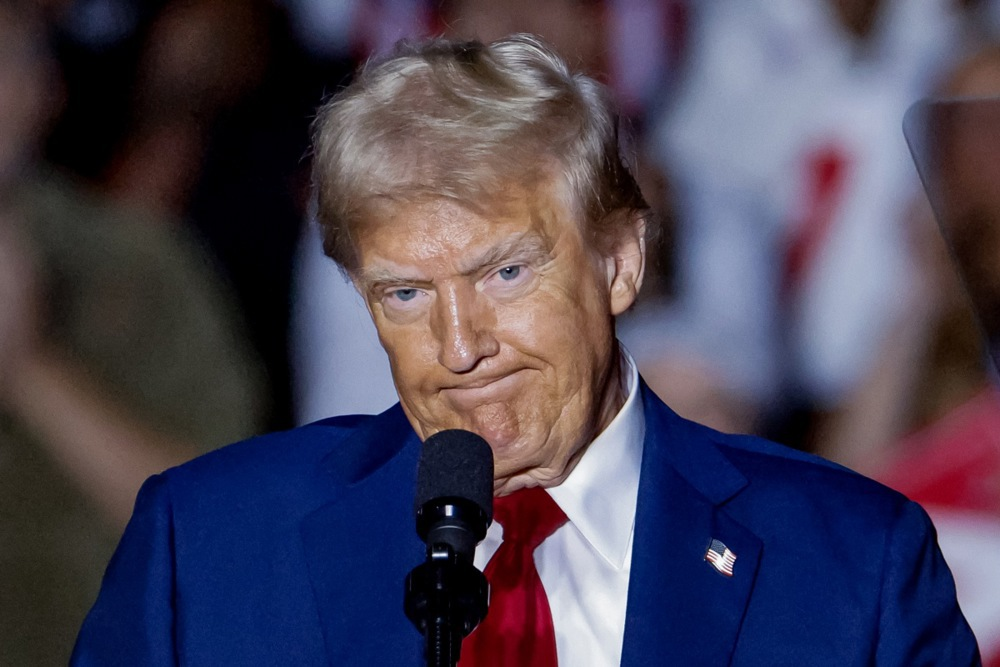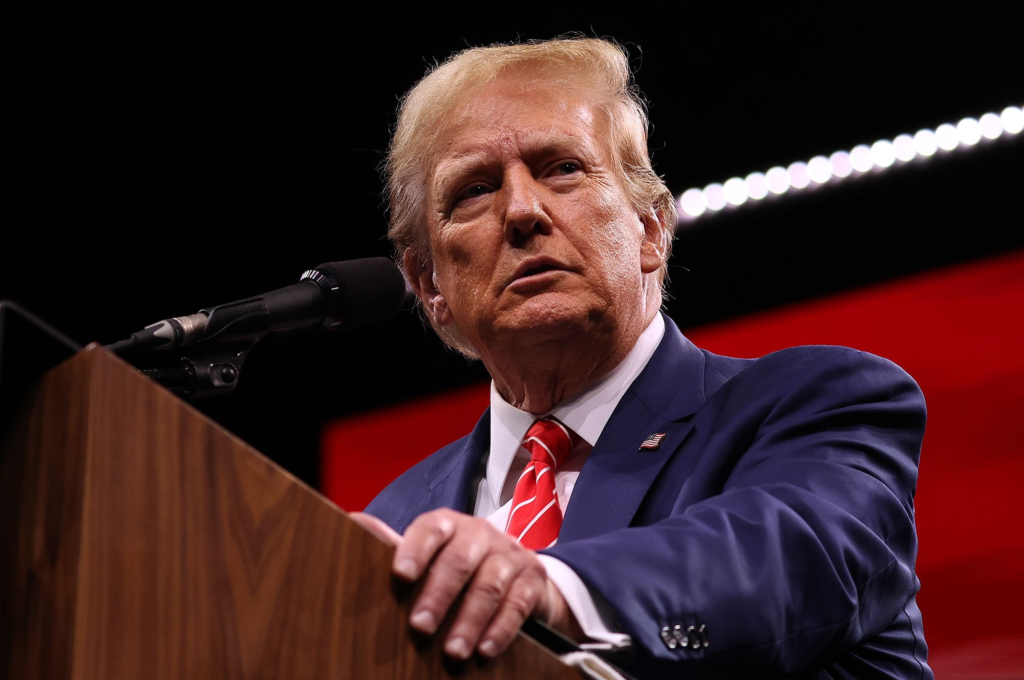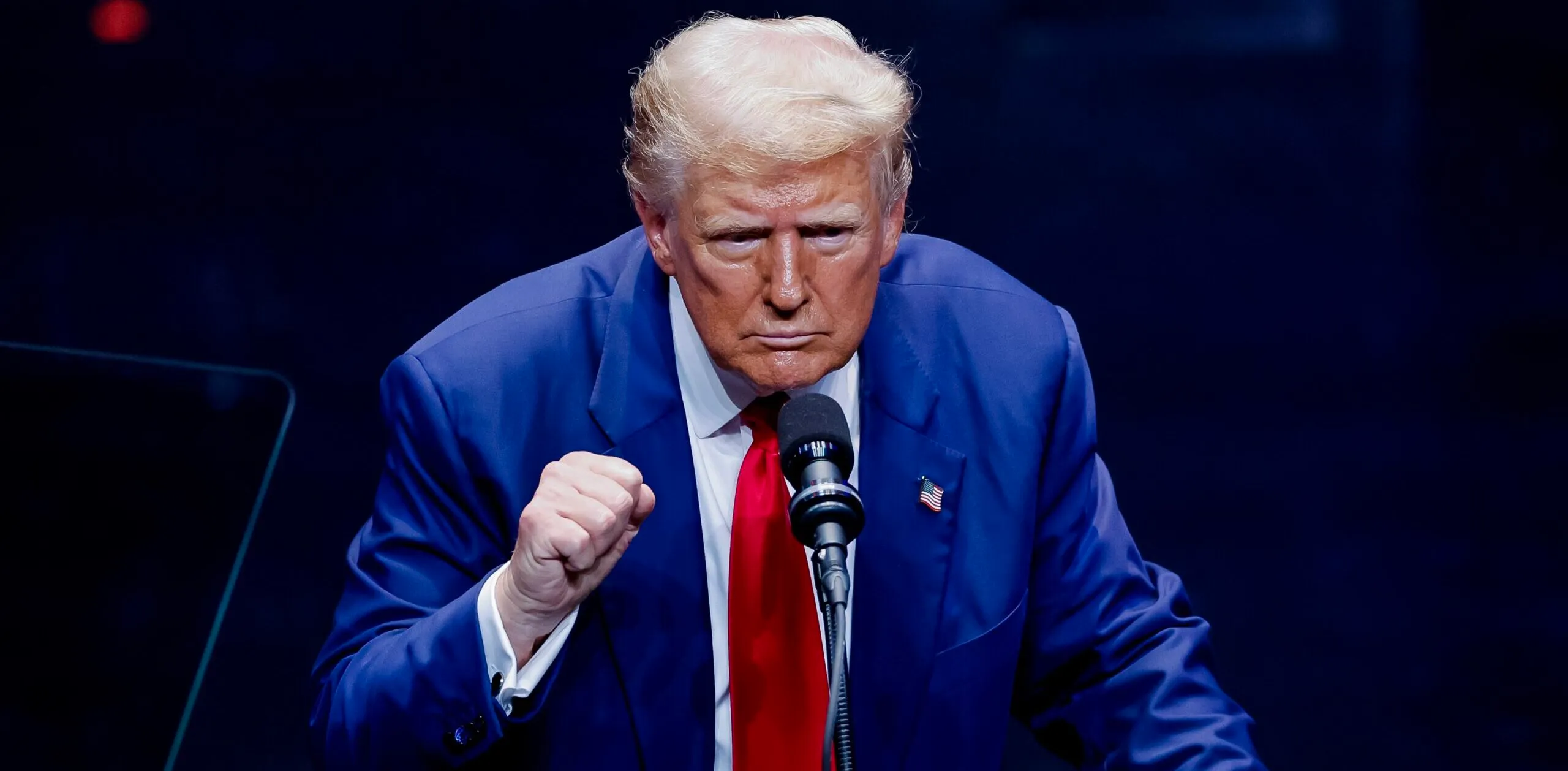In a charged rally in Pennsylvania, Republican presidential candidate Donald Trump warned that if elected, he would make the European Union (EU) “pay a big price” for what he described as the EU’s failure to buy enough American exports.
Trump’s remarks came as he promoted his proposed “Trump Reciprocal Trade Act,” which he claims would rectify trade imbalances and compel foreign countries to reciprocate on trade with the United States.
His stance drew significant attention in the political and economic spheres, stirring debates over potential trade tariffs, global supply chain disruptions, and diplomatic relations.
The EU has long been a major trade partner for the United States, particularly in sectors such as automotive, machinery, and agricultural products. Yet, Trump has criticized what he perceives as European trade barriers, stating that European countries benefit significantly from trade with the United States while allegedly blocking American exports, especially U.S.-made cars and farm goods.
“They don’t take our cars. They don’t take our farm products. They sell millions and millions of cars in the United States. No, no, no, they are going to have to pay a big price,” he said.
Trump’s rhetoric around trade tariffs and economic retaliation reflects his ongoing “America First” platform, aiming to protect U.S. businesses and jobs.
Below, we examine the key points of Trump’s proposed trade measures, their potential economic impact, and the implications for international relations.
Trump’s Stance on Tariffs and the “Trump Reciprocal Trade Act”
The “Trump Reciprocal Trade Act,” as proposed by the Republican candidate, focuses on ensuring that trading partners, particularly the European Union, offer equal market access to U.S. goods. Trump has consistently voiced concerns about trade imbalances, arguing that countries such as Germany, France, and other EU nations gain more from U.S. trade than they reciprocate.
Read : World’s Most Accurate Economist Predicts Donald Trump Win in US Election
During the rally in Pennsylvania, Trump framed the European trade relationship in starkly adversarial terms, suggesting that the U.S. has been unfairly taken advantage of and that his policies would correct these perceived inequities.
As part of this plan, Trump has proposed a 10% blanket tariff on imports from all countries. Furthermore, he has threatened a substantial 60% tariff on goods imported from China, citing concerns over supply chain dependencies, American jobs, and security.
Read : Trump Challenges Biden to Golf Match with $1 Million Charity Bet
Economists have raised alarms about these sweeping tariffs, highlighting the high likelihood of retaliatory tariffs from affected nations and potential disruptions to global supply chains. Such a scenario could increase the prices of imported goods in the U.S., from electronics to essential raw materials, passing higher costs onto American consumers.
Economic and Political Impacts of the Tariff Proposal on the EU and Global Markets
If Trump’s proposed tariffs were enacted, they could have profound consequences on the economies of both the United States and its trade partners. The EU, particularly strong in the automotive sector, would likely be among the hardest hit. Many of the world’s top automakers—such as Germany’s Volkswagen, BMW, and Daimler—rely heavily on access to the U.S. market.
Imposing steep tariffs on European cars and other goods would drive up costs for these companies, potentially impacting jobs within the EU’s automotive industry. Moreover, European companies exporting machinery, technology, and luxury goods could also face increased tariffs, making their products more expensive and less competitive in the U.S. market.
Economists caution that tariffs of this magnitude could slow economic growth, as businesses and consumers absorb the increased costs. Furthermore, this policy could prompt the EU to respond with its own tariffs on American goods, affecting sectors like agriculture, where U.S. farmers rely on foreign markets for soybeans, corn, and meat products.

Such retaliatory tariffs would likely reduce demand for U.S. exports in the EU, creating a ripple effect that could harm American farmers, manufacturers, and retailers. The political landscape would also be affected by this shift in trade policies. While Trump’s stance appeals to a subset of voters who feel that global trade agreements have disadvantaged American workers, his approach risks alienating allies and trading partners.
Diplomatically, it could widen rifts between the U.S. and the EU, as European leaders are expected to resist economic measures they view as punitive. Trump’s proposal, therefore, places not only economic stakes on the line but also the strength and stability of transatlantic relations.
Taiwan, China, and Global Security Implications
While addressing the crowd in Pennsylvania, Trump didn’t limit his comments to the EU, also referencing China and Taiwan in the context of trade and national security. His proposal to impose a 60% tariff on Chinese goods reflects his longstanding concerns over trade imbalances with China and the loss of American manufacturing jobs to Chinese factories.
By imposing high tariffs, Trump intends to push American companies to bring their production back to the United States, reducing dependency on Chinese imports. Critics, however, argue that this approach overlooks the intricacies of modern global supply chains, which are deeply integrated and challenging to separate.
Adding to the tension is Trump’s position on Taiwan, where he has suggested that the U.S. should seek financial compensation for providing defense support to the island. Taiwan, a self-governing democracy, is claimed by China, and the U.S. has legally committed to providing Taiwan with defensive capabilities despite not having formal diplomatic relations with the territory.
Trump’s comments have raised concerns in Taiwan, as they suggest a potential shift in U.S. policy toward a more transactional approach, potentially undermining longstanding commitments to Taiwan’s defense.
Taiwan’s semiconductor industry, a global leader in chip manufacturing, has been a focal point for Trump, as he asserts that Taiwan has taken over much of the U.S. semiconductor business.
With a world increasingly reliant on technology, semiconductors play a crucial role in the production of electronics, defense equipment, and more. Trump’s comments imply a desire to bring semiconductor production back to the U.S., possibly through tariffs or other economic incentives, to reduce dependency on Taiwan and bolster American technological self-sufficiency.
This stance could strain U.S.-Taiwan relations, potentially weakening alliances in Asia and making Taiwan more vulnerable to economic or military pressure from China.

Additionally, a strained relationship with Taiwan could have broader implications for the semiconductor industry, given that Taiwan is home to TSMC, the world’s largest contract chip manufacturer. Any disruption in Taiwan’s semiconductor output could lead to global shortages, affecting industries worldwide.
Trump’s proposed trade policies and tariffs present a stark shift from conventional economic practices, aiming to prioritize American interests by fundamentally reshaping trade relations with key partners, including the European Union and China.
While these policies resonate with certain voter bases, they carry significant risks for the global economy, international relations, and consumer prices within the United States. The proposed tariffs on European and Chinese imports, along with Trump’s statements regarding Taiwan’s semiconductor industry and defense, underscore his determination to alter the global trade landscape in favor of domestic interests.
However, the broader implications of these proposed policies raise concerns about increased costs for American consumers, retaliatory tariffs from affected countries, and potential strains in diplomatic relationships. Trump’s stance on trade reflects a move toward protectionism, which, if enacted, could signal a new chapter in U.S. foreign policy and economic strategy.
With the presidential election fast approaching, the outcome will likely shape the trajectory of U.S. trade and diplomatic relations with major global partners, setting the stage for either continuity or significant change in America’s approach to international trade and security.

